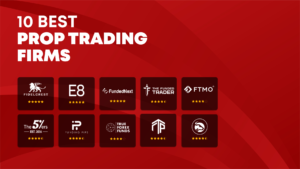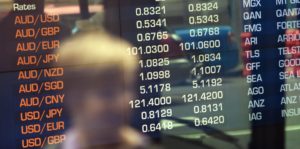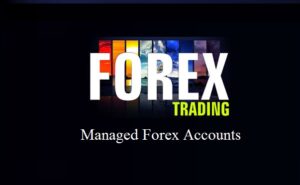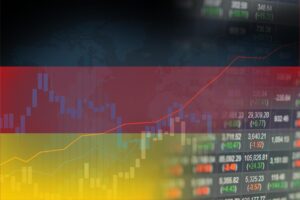Foreign exchange, commonly known as Forex, is the global marketplace for buying and selling currencies. Trillions of dollars are traded daily, making it the largest financial market in the world. Forex trading allows individuals, corporations, and governments to speculate on currency movements, hedge against currency risk, and seek investment opportunities across borders. Whether it’s the U.S. dollar, the Euro, or the Japanese Yen, these trades impact economies, interest rates, and even geopolitical landscapes.
Importance of Managed Forex Accounts
In the dynamic and complex world of Forex, not everyone has the time or expertise to monitor markets and make informed decisions. That’s where managed forex accounts come in. Managed Forex accounts are investment accounts where a professional trader or a team of traders manage the trading activities on behalf of the account holder. These accounts provide an avenue for individuals to participate in Forex trading without having to be involved in day-to-day operations. From risk management to strategic trading decisions, the experts take care of everything, potentially yielding better returns and a more diversified investment portfolio.
What This Guide Will Cover
This comprehensive guide aims to be your go-to resource for understanding the best managed Forex accounts 2024. It covers a range of topics, from what managed Forex accounts are and why they might be the right choice for you, to how to select a reliable Forex account manager. We will delve into the associated risks and benefits, examine the technological aspects that influence trading strategies, and even explore real-world case studies to understand how these accounts operate in practice. Whether you’re a seasoned trader considering diversification or a beginner looking to dip your toes into the Forex market, this guide has something for everyone.
Best Managed Forex Accounts 2024
As we move further into the digital age, the landscape of Forex trading continues to evolve. With the promise of better risk management, advanced trading technologies, and more robust regulatory frameworks, 2024 stands as a promising year for those looking to invest in managed Forex accounts. Therefore, if you’re aiming for high returns and a stable investment strategy in the complex world of Forex, make sure to read through this guide entirely to understand what the best managed Forex accounts 2024 can offer you.
I. What Are Managed Forex Accounts?
A. Definition: What Are Managed Forex Accounts?

Managed Forex accounts are specialized investment portfolios where the trading activities are handled by a professional or a team of professionals. Unlike traditional accounts where investors make their own trading decisions, managed Forex accounts are operated by experts who use their knowledge and experience to maximize profitability and manage risk. These accounts are designed for individuals, corporations, or even institutional investors who want to participate in the Forex market but either lack the time, expertise, or both to manage their own trading activities.
By opting for managed Forex accounts, you essentially delegate the responsibility of identifying trading opportunities, opening and closing positions, and risk management to experts in the field. This makes it a convenient option for those who are new to the Forex market, busy professionals who cannot commit the time needed for market analysis, or seasoned investors looking to diversify their investment portfolios.
B. Types of Managed Forex Accounts
When it comes to Forex trading, there’s no one-size-fits-all approach. Understanding this, the industry offers different types of managed accounts to suit various investment needs and risk profiles. Here, we explore the major types of managed Forex accounts: PAMM, MAM, and LAMM. Additionally, we will look into companies that offer these services.
PAMM (Percentage Allocation Money Management)
PAMM stands for Percentage Allocation Money Management. In a PAMM account, an experienced trader manages the funds of multiple investors in a single trading account. The profits and losses are distributed among the investors based on the percentage of their investment. This type of account is beneficial for both new and experienced investors, as it provides a way to diversify investments and risks.
MAM (Multi-Account Manager)
MAM accounts, or Multi-Account Manager accounts, offer more flexibility than PAMM accounts. In a MAM account, the manager uses a single terminal to manage multiple accounts. Each account can have different trading strategies, risk profiles, and investment objectives. This gives investors the flexibility to customize their investment based on individual goals and risk tolerance.
LAMM (Lot Allocation Money Management)
LAMM, or Lot Allocation Money Management, is different from PAMM and MAM in that it allocates trades based on the lot size rather than a percentage. This means each investor can choose the number of lots to be traded in his or her account, allowing for greater control over the level of risk assumed. LAMM is generally better suited for more experienced investors who understand lot sizes and are comfortable setting their own risk parameters.
Companies Offering Managed Forex Accounts

Many companies offer managed Forex account services, but it’s crucial to choose one that’s reputable, regulated, and transparent in its operations. Look for firms with a proven track record, verifiable performance statistics, and positive client reviews. Here we present a brief overview of Forex92 which is one of the best managed forex accounts providers.
Forex92:
Forex92 is a financial services company specializing in various aspects of forex trading and investment. The company offers a range of services that include managed forex accounts, prop firm challenge passing services, retirement planning, and fund management. These services are aimed at both individual and institutional clients.
Service Offerings:
- Managed Accounts: Forex92 provides managed trading accounts where they handle trading activities on behalf of their clients.
- Prop Firm Challenge Passing Service: This unique service is targeted at traders looking to qualify for proprietary trading firms. Forex92 takes on the challenge requirements and aims to pass them on the client’s behalf.
- Retirement Planning: Forex92 offers retirement planning services that integrate forex trading into long-term financial goals.
- Fund Management: For institutional clients or individuals with significant capital, Forex92 offers bespoke fund management services focused on forex markets.
Fee Structure:
Forex92 operates on a performance fee model. They charge a 30% fee on the total profits generated each month. The fee is calculated based on the High Water Mark Rule, which means that the performance fee is only applicable on new profits made, protecting the client from being charged fees on the same profits repeatedly.
C. Working Mechanism: How Managed Forex Accounts Operate
Understanding the working mechanism of managed Forex accounts can offer you greater confidence and clarity as an investor. Whether you’re considering PAMM, MAM, or LAMM accounts, the fundamental premise remains the same: you’re entrusting your investment capital to professional traders or trading algorithms to navigate the volatile Forex markets on your behalf. Below, we detail how managed Forex accounts typically operate.
Account Setup
The first step involves setting up your managed Forex account with a reputable brokerage or a specialized Forex management firm. Usually, this requires filling out an application form, submitting identification documents for KYC (Know Your Customer) procedures, and funding your account.
Agreement and Strategy Discussion
Once your account is set up, you’ll sign a limited power of attorney (LPOA), a legal document that grants the account manager the right to manage your funds in terms of trading but not withdrawals. You’ll often have an initial discussion with the account manager to determine your risk profile, investment goals, and other preferences.
Trading Commences

After the legal formalities are complete and your account is funded, the account manager or team begins trading. Based on the type of managed Forex account you’ve chosen—PAMM, MAM, or LAMM—the manager executes trades that align with the agreed-upon strategy and risk parameters.
Monitoring and Reporting
One of the key features of the best managed Forex accounts 2024 will be transparency. Most reputable managed Forex account services offer periodic reporting that allows you to monitor the performance of your investment. These reports can be daily, weekly, or monthly and include metrics like profit and loss, risk exposure, and individual trade data.
Fees and Profit Sharing
Managed Forex accounts usually operate on a fee structure that can include a setup fee, a monthly maintenance fee, and/or a performance fee based on the profits generated. Always make sure you understand the fee structure and how it will impact your net returns.
Risk Management
Integral to the operation of managed Forex accounts is a robust risk management strategy. The best managers not only focus on generating profits but also on minimizing losses. They employ techniques like setting stop-loss and take-profit levels and diversifying currency pairs to manage risk effectively.
Withdrawals and Additional Investments
Typically, you’ll have the flexibility to withdraw funds or make additional investments into your managed Forex account. However, be aware of any stipulations or fees that may apply to these transactions.
The best managed Forex accounts 2024 will offer a seamless blend of profitability, risk management, and transparency. By understanding the working mechanisms of these accounts, you can make a more informed decision that aligns with your financial goals.
II. Why Choose a Managed Forex Account?
Choosing a managed Forex account can offer various advantages to both novice and experienced investors who want to engage in Forex trading. Here are some of the key benefits:
A. Benefits
- Professional Management: One of the most compelling benefits of opting for a managed Forex account is the professional management of your assets. Experienced traders and analysts handle your investments, applying tried-and-true strategies along with real-time market insights. This expertise often leads to better risk management and potentially higher returns compared to self-managed accounts.
- Time-saving: Forex trading is a time-intensive activity requiring constant monitoring of market conditions. A managed account relieves you of this responsibility, freeing up time for other pursuits or investments. All trading decisions, from market analysis to the actual buying and selling of currency pairs, are taken care of by the account managers.
- Diversification: Managed accounts often incorporate a range of trading strategies and may also diversify across various currency pairs and even other asset classes. This diversification can serve to mitigate risk and provide a more balanced investment portfolio.
In summary, the benefits of managed Forex accounts include professional management of your trading activities, significant time-saving, and the advantage of portfolio diversification. Each of these benefits can make a managed Forex account an appealing investment option for those looking to participate in the Forex market without the need for constant involvement or specialized knowledge.
B. Use Cases: When It Makes Sense to Opt for Managed Forex Accounts

Managed Forex accounts may not be suitable for everyone, but there are specific use-cases where they offer considerable advantages. Here are scenarios where opting for a managed account could be a wise choice, considering the search for the best managed Forex accounts in 2024:
1. Limited Time Availability
For individuals who are preoccupied with other commitments like a full-time job, a business, or even other investments, managed Forex accounts are an efficient way to engage in the market without needing to dedicate much time.
2. Lack of Trading Expertise
Forex trading requires specialized skills in market analysis, risk management, and trading psychology, among other things. Those who lack this expertise can benefit significantly from a managed account where professionals make the trading decisions.
3. Diverse Portfolio
Investors who are looking to diversify their investment portfolios beyond traditional asset classes like stocks and bonds can consider managed Forex accounts. Forex trading can be less correlated with market events affecting the stock and bond markets, providing an additional layer of diversification.
4. Risk Management
Professional account managers typically have risk management protocols in place. For those who are not confident in their ability to manage the risks associated with Forex trading, a managed account can be a safer option.
5. Asset Accumulation for Specific Goals
If you’re saving towards a particular financial goal like retirement, a down payment on a property, or a future investment, a managed Forex account can serve as one component of a broader financial strategy.
6. Seeking Competitive Returns
Investors who are in search of potentially higher returns compared to traditional investment vehicles might find managed Forex accounts appealing. It’s crucial, however, to weigh these potential returns against the higher level of risk associated with Forex trading.
7. High Net Worth Individuals
For affluent investors, managed Forex accounts can offer an alternative to hedge funds or private equity investments. Managed accounts can be customized to fit specific risk tolerance levels and financial objectives.
In summary, managed Forex accounts can be a suitable investment option for a variety of investors, from those with limited time or trading expertise to those looking for diversification or specific financial goals. As with any investment, it’s essential to conduct due diligence and consult with financial advisors to determine if a managed Forex account aligns with your overall financial strategy, especially when searching for the best managed Forex accounts in 2024.
III. How to Choose the Best Managed Forex Accounts in 2024
Choosing the right managed Forex account is a crucial step in your investment journey. The options may seem endless, and the promises lucrative, but it’s essential to conduct thorough research to ensure you’re making an informed decision. Below, we break down key aspects you should consider when selecting the best managed Forex accounts in 2024.
A. Researching Providers
This section aims to arm you with practical tips on how to choose among the best managed Forex accounts 2024. By focusing on reviews, past performance, and personal recommendations, you can significantly improve your chances of finding a managed Forex account that is well-suited to your needs.
Reviews
Online reviews are a goldmine of information when it comes to gauging the credibility and performance of managed Forex account providers. Look for reviews from verified customers on reputable financial forums, investment websites, and social media platforms. Keep an eye out for consistent feedback—both positive and negative—about the provider’s performance, customer service, and transparency.
Past Performance
Past performance isn’t an indicator of future results, but it can provide valuable insights into a provider’s competence and reliability. Examine the track records of various managed Forex account providers to assess their long-term and short-term performance. Look for providers who have a consistent history of profitable trading and whose trading strategy aligns with your investment goals. Additionally, verify if these records are audited and available for public scrutiny.
Recommendations
Personal recommendations from people you trust can often be the most reliable source of information. If you have friends, family members, or colleagues who have experience with managed Forex accounts, their insights can be invaluable. They can share their personal experiences, including the profitability of their investments, the responsiveness of the account managers, and the overall customer experience.
When researching providers for the best managed Forex accounts in 2024, it’s important to rely on multiple sources of information. Make sure to cross-verify details and be wary of overly promotional or sketchy information. Your goal should be to find a reputable, competent, and transparent managed Forex account provider who can help you meet your financial objectives.
B. Account Requirements
Before you decide on a provider, it’s crucial to understand the various account requirements and how they align with your investment strategy and financial circumstances. Key considerations include minimum deposits and fee structures. Below, we delve into these aspects to help you make an informed decision when selecting the best managed Forex accounts in 2024.
Minimum Deposits
Managed Forex accounts often have minimum deposit requirements, which vary depending on the provider and the type of managed account you choose (PAMM, MAM, or LAMM). Minimum deposit amounts can range from a few hundred to several thousand dollars. It’s essential to ensure that the required minimum deposit aligns with your investment budget. This will not only allow you to invest comfortably but also provide enough capital for the manager to execute a diversified trading strategy.
Fee Structures
Understanding the fee structure is equally important when selecting a managed Forex account. Fees can significantly impact your net returns, so you must be clear about all charges involved. Typical fee structures may include:
- Setup Fees: Some accounts may require an initial setup fee.
- Management Fees: These are usually annual fees calculated as a percentage of the account balance. They cover the cost of managing the account and are often charged regardless of performance.
- Performance Fees: These are fees charged on the profits generated by the account. Performance fees align the interests of the manager and the investor but make sure they are reasonable.
- Exit Fees: Some providers may charge a fee for withdrawing your investment before a certain period.
- Hidden Fees: Always ask for a complete breakdown of all potential fees, including those not explicitly mentioned, like wire transfer fees or inactivity fees.
By considering minimum deposits and understanding the various fee structures, you can find a managed Forex account that suits your financial situation and investment goals. Whether you are a seasoned investor or new to the Forex market, knowing these requirements upfront can save you from unexpected costs and disappointments.
Incorporating the keyword “Best managed Forex accounts 2024,” this section aims to guide you through the financial requirements and commitments involved in choosing a managed Forex account. Armed with this knowledge, you can better navigate the myriad of options available to find the best managed Forex accounts in 2024 that align with your needs and objectives.
C. Red Flags: What to Avoid When Selecting Managed Forex Accounts
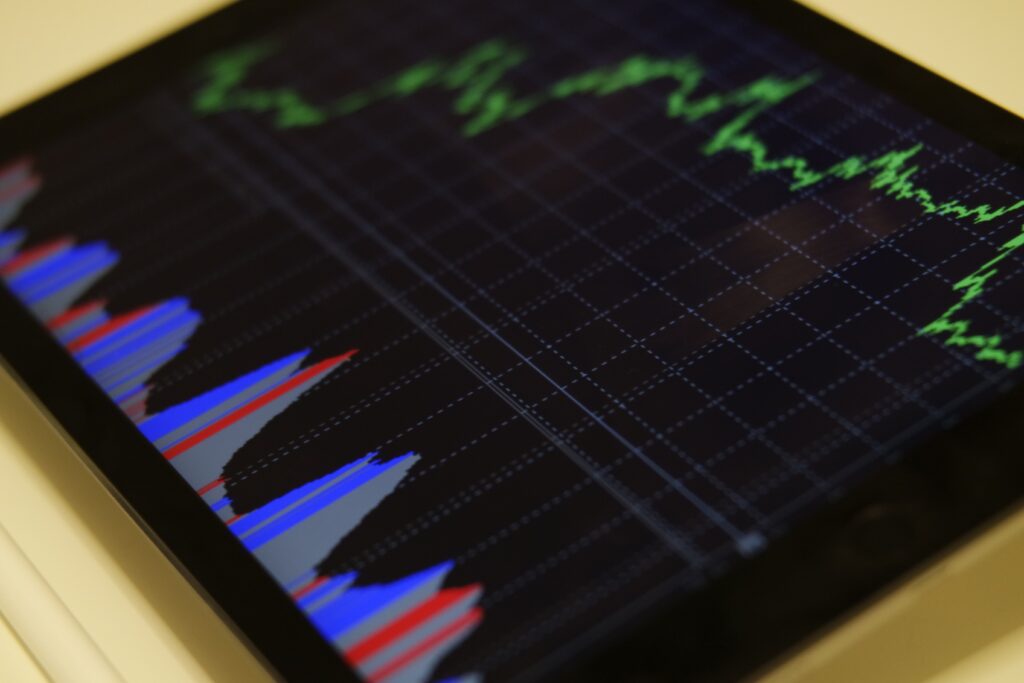
While managed Forex accounts can offer an attractive avenue for profit, they are not without their pitfalls. As an investor, you need to be aware of certain red flags that could signify unreliable or even fraudulent providers. Here, we delve into some key warning signs you should be on the lookout for when selecting a managed Forex account.
Unrealistic Profit Promises
If it sounds too good to be true, it probably is. Be wary of account managers or firms promising exceptionally high returns with minimal or no risk. The Forex market is inherently volatile, and while high returns are possible, they come with corresponding high risks.
Lack of Transparency
Transparency is crucial in any financial undertaking, and managed Forex accounts are no exception. Account providers should offer detailed and audited trading histories, and they should be open about their fee structures. If a provider is not forthcoming with this information, consider it a significant red flag.
Unregulated Providers
Always choose a provider that is regulated by a reputable financial body, such as the FCA, NFA, or ASIC. Regulatory oversight offers a level of protection to investors and ensures that the account managers adhere to specific standards of conduct.
Inconsistent or Unverifiable Track Record
Be cautious if the provider lacks a consistent or verifiable trading history. Without evidence of past performance, it’s impossible to gauge the potential for future profitability. A reliable provider should offer audited and transparent track records to prove their competence.
High or Hidden Fees
Exorbitant or hidden fees can quickly erode your profits. Always ask for a comprehensive list of all charges and ensure you understand how these will impact your investment returns. If a provider is not transparent about fees, it’s a red flag.
Aggressive Sales Tactics
High-pressure sales tactics, such as urging you to invest before fully understanding the risks or conditions, should raise an alarm. Reputable providers will give you the time and information you need to make an informed decision.
Vague or Incomplete Contractual Agreements
Ensure that you understand every clause in the agreement or contract you’re entering into. Vague or incomplete agreements are a red flag as they may allow the provider to absolve themselves of responsibility should things go awry.
By being aware of these managed Forex accounts red flags, you can protect yourself from making an ill-advised investment that could result in financial loss. Always conduct thorough due diligence and consult with financial advisors if needed, to ensure that you’re entrusting your money to a reliable and reputable managed Forex account provider.
This section, incorporating the keyword “Managed Forex accounts red flags,” aims to arm you with the necessary caution to make safe investment choices. By knowing what to avoid, you’re one step closer to selecting a managed Forex account that aligns with your financial goals and risk tolerance.
IV. Risks and Benefits of Managed Forex Accounts

Investing in managed Forex accounts comes with both potential risks and benefits. It’s crucial for investors to understand these aspects to make well-informed decisions. In this section, we focus on the risks involved, covering market risks and manager risks to give you a comprehensive understanding.
A. Risks
Market Risks
- Volatility: The Forex market is known for its high volatility. Currency prices can change rapidly, leading to significant profits but also substantial losses. Even the best-managed Forex accounts are not immune to the unpredictable nature of the market.
- Economic Events: Factors like interest rate changes, political instability, and macroeconomic developments can impact currency values. These uncontrollable variables can have a direct effect on your investment’s performance.
- Leverage Risks: Leverage can amplify both gains and losses. While it can be enticing due to the prospect of higher profits, it also increases the potential for significant losses, especially in a highly volatile market.
Manager Risks
- Strategy Risk: Different managers employ various trading strategies. Some might focus on short-term gains, while others may adopt a long-term approach. A strategy that does not align with your investment goals can be a risk.
- Operational Risks: These are risks associated with the manager’s trading platform, transaction processes, and other operational aspects. Glitches, execution delays, and other issues can impact trading performance.
- Human Error: Even the most experienced and skilled managers can make mistakes, misjudge market conditions, or fail to predict economic events accurately. Human error is an unavoidable risk in managed Forex accounts.
- Fraud and Mismanagement: As previously discussed in the section on red flags, there is a risk of encountering fraudulent schemes or mismanagement, particularly with unregulated or disreputable providers.
By understanding these risks of managed Forex accounts, you can better prepare for potential setbacks and take steps to mitigate these risks. Whether it’s through diversified investment, rigorous manager selection, or other risk management strategies, being aware of these risks is the first step in safeguarding your investment.
This section aims to educate you on the risks involved in investing in managed Forex accounts, incorporating the keyword “Risks of managed Forex accounts.” With this comprehensive understanding, you’ll be better equipped to assess whether managed Forex accounts align with your risk tolerance and financial objectives.
B. Benefits of Managed Forex Accounts
While managed Forex accounts come with their set of risks, they also offer a range of benefits that can make them an attractive investment option for both novice and experienced traders. Below, we explore some of the key advantages, focusing on risk management and expert analysis, to help you decide whether managed Forex accounts could be the right fit for your investment portfolio in 2024.
Risk Management
- Professional Oversight: One of the most significant advantages of a managed Forex account is the professional management of your investment. Experienced managers are well-versed in market analysis and risk assessment, enabling them to make informed trading decisions.
- Diversification: A competent manager can diversify your investments across various currency pairs and trading strategies, thus spreading the risk. Diversification can be particularly beneficial in reducing the impact of market volatility on your portfolio.
- Stop-Loss Mechanisms: Most managed Forex accounts use stop-loss orders to limit potential losses. This automated feature allows the manager to exit a losing trade at a predetermined level, thus capping your losses.
- Customized Risk Profiles: Many managed Forex account services allow you to define your risk profile, which the manager will adhere to when executing trades. This ensures that the trading activities align with your risk tolerance and investment objectives.
Expert Analysis
- Market Research: Professional managers spend a considerable amount of time analyzing market trends, economic indicators, and geopolitical events. This expert analysis can give you an edge in making profitable trades.
- Real-Time Decisions: Experienced managers can adapt strategies in real-time to take advantage of market opportunities or mitigate risks. This agility can be especially beneficial in the fast-moving Forex market.
- Strategic Trading: Managers use a mix of fundamental and technical analysis to devise trading strategies. Their expertise in chart patterns, indicators, and economic forecasts can significantly improve the likelihood of successful trades.
- Learning Opportunity: While the manager handles the trading, you can still follow along and gain insights into Forex trading strategies and risk management techniques, making it an educational experience.
By understanding these benefits of the best managed Forex accounts 2024, you can weigh the pros and cons to make a more informed investment decision. The expertise of a professional manager can offer you valuable risk management and strategic trading benefits that may enhance the performance of your investment portfolio.
This section incorporates the keyword “Benefits of best managed Forex accounts 2024” to provide you with a detailed understanding of why managed Forex accounts might be an appealing investment option for you in 2024. With this knowledge, you can make an educated choice that aligns with your financial goals and risk tolerance
V. Technological Aspects of Managed Forex Accounts
Technological advancements have revolutionized the Forex trading industry, offering a plethora of platforms that facilitate efficient trading and management. In this section, we focus on the technological aspects of managed Forex accounts, discussing popular trading platforms like MT4, MT5, and cTrader. Understanding these platforms will help you gauge the technical capabilities of the managed Forex account providers you’re considering.
A. Platforms
MT4 (MetaTrader 4)
- User-Friendliness: MT4 is known for its user-friendly interface, making it suitable for traders of all experience levels.
- Technical Analysis Tools: The platform comes with a comprehensive set of charting tools and technical indicators that allow for in-depth market analysis.
- Automation: MT4 supports automated trading through Expert Advisors (EAs), which can be beneficial for systematic trading strategies.
- Security: With its advanced security protocols, MT4 ensures a secure trading environment.
- Community and Support: MT4 has a large online community, providing a plethora of custom indicators, scripts, and automated strategies freely available for download.
MT5 (MetaTrader 5)
- Enhanced Features: MT5 offers additional timeframes, more technical indicators, and enhanced charting capabilities compared to MT4.
- Multi-Asset Trading: Unlike MT4, which is primarily focused on Forex trading, MT5 supports multiple asset classes, including stocks and commodities.
- Economic Calendar: MT5 comes with an integrated economic calendar that can assist traders in anticipating market events that might affect currency prices.
- Depth of Market: This feature provides a view of the market’s liquidity, which can be useful for understanding the supply and demand of particular currency pairs.
cTrader
- Intuitive Interface: cTrader is known for its intuitive and clean user interface, which is highly customizable.
- Advanced Charting: The platform provides sophisticated charting tools, allowing traders to conduct complex technical analysis.
- Level II Pricing: cTrader offers Level II pricing, providing more transparency into the market’s available liquidity.
- Algorithmic Trading: For those interested in automated trading, cTrader supports cAlgo, which allows users to create custom trading algorithms.
By understanding these Forex trading platforms, you can better evaluate the technological capabilities of different managed Forex account providers. Each platform has its unique set of features, and the choice of platform could impact the efficiency and effectiveness of your managed account’s trading activities.

This section incorporates the keyword “Forex trading platforms” to provide you with an in-depth understanding of the technological aspects of managed Forex accounts. Knowing the features and benefits of these platforms will help you choose a managed Forex account that aligns with your trading style and investment objectives.
B. Tools and Indicators for Managed Forex Accounts
Trading tools and indicators are integral components in the arsenal of a Forex account manager. These technological features not only facilitate better market analysis but also enable automated trading, which can be a significant advantage. This section focuses on technical indicators and automated trading tools, helping you understand their role in managed Forex accounts for 2024.
Technical Indicators
- Moving Averages: One of the most commonly used indicators, moving averages help traders identify the trend direction and strength. They are especially useful for smoothing out price fluctuations and providing a clearer market picture.
- RSI (Relative Strength Index): This momentum indicator measures the speed and change of price movements. RSI can help identify overbought or oversold conditions, providing signals for potential reversals.
- MACD (Moving Average Convergence Divergence): MACD is used to spot changes in the strength, direction, momentum, and duration of a trend in a stock’s price.
- Fibonacci Retracements: These are useful for identifying potential support and resistance levels in the Forex market. They are based on the mathematical Fibonacci sequence and its special properties.
- Bollinger Bands: These bands encapsulate the price movement of a currency pair, providing a relative definition of high and low prices. When the bands tighten, it indicates lower volatility and could be a signal for potential future volatility and price movements.
- Stochastic Oscillator: This indicator compares a particular closing price of a security to a range of its prices over a specific period. It generates values between 0 and 100 and is useful for spotting oversold or overbought conditions.
Automated Trading Tools
- Expert Advisors (EAs): These are software programs designed for MT4 and MT5 platforms that can execute trades automatically based on predetermined criteria. They are highly customizable and can operate round the clock.
- Copy Trading: This allows you to automatically copy the trades of successful traders, which can be beneficial if you lack the time or expertise to manage your account actively.
- Trading Algorithms: Custom algorithms can be developed for platforms like cTrader, enabling more complex trading strategies to be automated.
- Backtesting Software: This enables the testing of trading strategies against historical data, helping to optimize strategies before applying them in real-time trading.
By familiarizing yourself with these tools and indicators, you can better understand how the best managed Forex accounts in 2024 can leverage technology to improve trading performance. These advanced features enable managers to execute more informed and timely trades, enhancing the prospects for better returns on your investment.
This section incorporates the keyword “Best managed Forex accounts 2024” to give you insights into the technical tools and indicators that you should consider when evaluating managed Forex account providers for the year 2024. Understanding these aspects will empower you to make a more informed decision that aligns with your financial goals.
VI. Regulations and Compliance in Managed Forex Accounts
Ensuring that your managed Forex account operates within a regulated framework is essential for safeguarding your investment. Regulatory compliance provides a layer of trust and accountability that can be crucial when you’re entrusting your capital to a third party. In this section, we’ll explore some of the key regulatory bodies that oversee Forex trading and managed Forex accounts, emphasizing their role and significance.
A. Regulatory Bodies
Australian Securities and Investments Commission (ASIC)
- Jurisdiction: Regulates financial markets in Australia.
- Client Funds Protection: Requires that client funds be held in separate accounts.
- Transparency: Regular reporting and auditing are mandated to maintain transparency.
- Consumer Rights: Strong focus on consumer protection and dispute resolution.
Financial Markets Authority (FMA)
- Jurisdiction: Regulates financial markets in New Zealand.
- Licensing: Firms need to be licensed by the FMA to offer financial services, including Forex trading.
- Risk Management: Requires companies to have adequate risk management systems in place.
- Accountability: Imposes penalties for non-compliance and unethical behavior.
European Securities and Markets Authority (ESMA)
- Jurisdiction: Supervises financial markets in the European Union.
- Leverage Caps: Imposes restrictions on the amount of leverage that can be offered to retail investors.
- Client Classification: Requires brokers to differentiate between retail and professional clients, providing varying levels of protections.
- Transparency: Mandates regular disclosure of trading data and risks.
Investment Industry Regulatory Organization of Canada (IIROC)
- Jurisdiction: Regulates investment dealers and trading activity in debt and equity marketplaces in Canada.
- Client Identification: Rigorous KYC procedures are required.
- Margin Requirements: Sets margin requirements for different financial instruments, including Forex.
- Dispute Resolution: Offers services to resolve issues between clients and brokers.
Securities and Exchange Board of India (SEBI)
- Jurisdiction: Regulates the securities market in India.
- Licensing: Forex brokers need to be authorized by SEBI to operate in India.
- Transparency: Requires periodic disclosures for audit and compliance purposes.
- Investor Protection: Focuses on protecting the interests of investors through stringent regulations.
Financial Services Agency (FSA)
- Jurisdiction: Regulates financial services in Japan.
- Leverage Restrictions: Imposes strict leverage restrictions to limit excessive risk-taking.
- Trading Hours: Regulates the trading hours for various financial markets, including Forex.
- Compliance Checks: Regular audits are conducted to ensure that firms comply with the established rules and regulations.
This section incorporates the keyword “Forex account regulations” to offer you comprehensive information on the regulatory landscape governing managed Forex accounts. Make sure to verify the regulatory credentials of any managed Forex account provider you are considering, as compliance with reputable regulatory bodies adds an extra layer of security and reliability to your investment. By including regulatory bodies from Australia, New Zealand, Europe, Canada, India, and Japan, you gain a more comprehensive understanding of the global Forex account regulations. This extended knowledge will allow you to evaluate managed Forex account providers operating in various parts of the world, ensuring you can make a choice that aligns with your requirements for regulatory compliance and safety.
B. Compliance Checks for Managed Forex Accounts
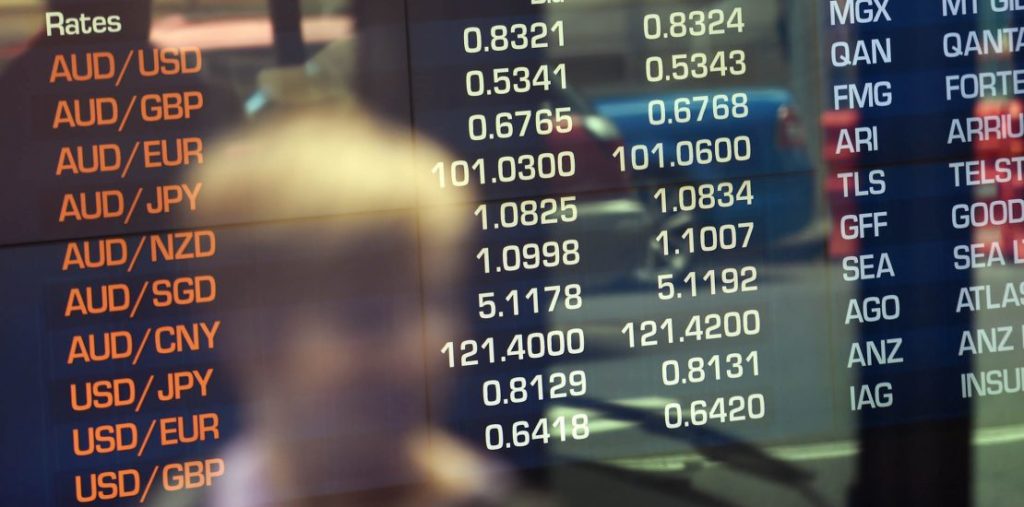
Choosing a managed Forex account that adheres strictly to compliance checks is paramount to ensuring the security of your investment. Regulatory bodies worldwide enforce various checks and compliance requirements that managed Forex account providers must meet. In this section, we’ll delve into essential compliance checks such as Due Diligence, Know Your Customer (KYC), and Anti-Money Laundering (AML) processes. Understanding these can help you identify the best managed Forex accounts in 2024.
Due Diligence
- Company Background: Before selecting a managed Forex account provider, ensure you research the company’s history, including its regulatory track record.
- Management Team: Check the credentials of the account managers and see if they have the requisite experience and qualifications in Forex trading.
- Client Reviews: Customer reviews and testimonials can offer valuable insights into the reliability and performance of the managed Forex account provider.
- Legal Documents: Scrutinize the terms and conditions, disclaimers, and any other contractual obligations you may be subject to.
- Performance Metrics: Past performance can be a helpful indicator, although it’s not a guarantee for future returns. Make sure you examine audited performance reports if available.
Know Your Customer (KYC)
- Identity Verification: Typically, you’ll be required to provide photo identification such as a passport or a driver’s license.
- Address Verification: Utility bills or bank statements are commonly used to verify your address.
- Purpose of Investment: You may be asked to specify the objectives behind your investment, such as risk tolerance, investment horizon, and financial goals.
- Financial Status: Some managed account providers might require information about your financial status to assess whether the service is appropriate for you.
Anti-Money Laundering (AML)
- Source of Funds: You may need to disclose the source of the funds you intend to invest, especially for larger amounts.
- Transaction Monitoring: Managed account providers continuously monitor transactions for suspicious activity as a part of AML compliance.
- Reporting: Any suspect transactions are reported to the respective regulatory authorities for further investigation.
- Withdrawal Restrictions: There may be restrictions or additional checks in place when you try to withdraw large sums, as a measure to counteract money laundering.
Understanding these compliance checks and processes can help you make more informed decisions when selecting among the best managed Forex accounts in 2024. Not only do these checks ensure the security of your investment, but they also give you peace of mind knowing that the managed account provider operates within a regulated and transparent framework.
This section incorporates the keyword “Best managed Forex accounts in 2024” to emphasize the importance of compliance checks in choosing the right managed Forex account. Make sure that the account provider you select adheres to these compliance standards, adding an extra layer of security to your investment.
VII. Case Studies: Best Managed Forex Accounts 2024
Case studies serve as invaluable sources of real-world evidence on the performance and reliability of managed Forex accounts. This section will delve into real-world examples of profitable managed Forex accounts, providing you with insights that can guide your decision-making process. By examining these case studies, you can better gauge what to look for when seeking the best managed Forex accounts in 2024.
Case Study 1: High-Risk, High-Reward Strategy
Background:
- Account Manager: ForexAlpha Inc.
- Regulatory Compliance: FCA registered
- Investment Strategy: Focuses on high volatility currency pairs, utilizes high leverage.
Results:
- ROI: Achieved a 50% return on investment within the first quarter of 2024.
- Drawdown: Experienced a maximum drawdown of 20%.
- Risk Measures: Utilized stop-loss orders and trailing stops for risk management.
Key Takeaway:
- High-risk strategies can yield substantial returns but come with increased drawdowns. Suitable for investors with a higher risk tolerance.
Case Study 2: Diversified Portfolio Strategy
Background:
- Account Manager: GlobexFX Solutions
- Regulatory Compliance: Regulated by ASIC and CySEC
- Investment Strategy: Diversified among major, minor, and exotic currency pairs, along with some commodities.
Results:
- ROI: Achieved a stable 20% return on investment over six months.
- Drawdown: Low drawdown of just 5%.
- Risk Measures: Employed hedging techniques and maintained a diversified portfolio to minimize risk.
Key Takeaway:
- Diversification can offer stable returns with reduced risk. Suitable for conservative investors looking for consistent growth.
Case Study 3: Automated Trading Strategy
Background:
- Account Manager: AutoTradeFX
- Regulatory Compliance: NFA and FCA compliant
- Investment Strategy: Utilizes algorithmic trading strategies based on machine learning models.
Results:
- ROI: Generated a 30% ROI in 8 months.
- Drawdown: Maximum drawdown of 10%.
- Risk Measures: Automated risk management algorithms in place to adapt to market changes rapidly.
Key Takeaway:
- Automated trading can be a robust and efficient strategy but requires state-of-the-art technology and constant monitoring.
By examining these case studies, you can get an idea of the diverse strategies and risk profiles available when selecting among the best managed Forex accounts in 2024. It’s crucial to match your investment objectives, risk tolerance, and financial goals with the appropriate managed Forex account. These real-world examples offer tangible insights into what you can expect when investing in managed Forex accounts, helping you make an informed decision for your financial future.
VIII. Questions to Ask Before Investing in Managed Forex Accounts
Investing in a managed Forex account is a significant financial decision that requires due diligence and careful consideration. To ensure you’re making the right choice, it’s imperative to ask a series of questions before committing your funds. Here are some key questions to ask to help you select among the best managed Forex accounts in 2024.

What is the Track Record?
- Duration: How long has the managed Forex account service been in operation? A longer track record can be indicative of reliability and expertise.
- Performance Metrics: Ask for audited performance reports that outline the account’s historical returns, drawdowns, and other relevant statistical measures.
- Client Reviews: What do other investors have to say about this managed Forex account? Look for testimonials and reviews that can give you an idea of the provider’s reputation.
- Regulatory Compliance: Is the managed Forex account provider regulated by a reputable regulatory body? This adds an extra layer of security and transparency.
What are the Fees?
- Management Fee: This is usually an annual fee calculated as a percentage of the assets under management.
- Performance Fee: Some providers charge a fee based on the profits generated by the account.
- Entry/Exit Fees: Are there any costs involved in starting or ending your investment with the managed Forex account?
- Hidden Fees: Always inquire about any hidden fees or additional charges that might not be immediately obvious.
How Easy Is It to Withdraw Funds?
- Withdrawal Process: Understand the procedure for withdrawing funds from your managed Forex account. Is it straightforward, or are there complicated hoops to jump through?
- Withdrawal Fees: Are there any fees or penalties for withdrawing your funds? If so, what are they?
- Time Frame: How quickly can you expect to see the withdrawn funds in your bank account?
- Restrictions: Are there any restrictions on withdrawals, such as minimum withdrawal amounts or a lock-in period during which withdrawals are not permitted?
By asking these crucial questions, you can gain a comprehensive understanding of what to expect from a managed Forex account provider. The answers will guide you in selecting a service that aligns with your investment goals, risk tolerance, and expectations, helping you identify the best managed Forex accounts in 2024.
Remember, making informed decisions is crucial in the world of Forex trading. The more you know, the better equipped you’ll be to navigate the complexities of managed Forex accounts.
IX. Future Trends and Predictions in Managed Forex Accounts
As the Forex market continually evolves, it’s crucial for investors to stay abreast of future trends and predictions. Innovations in technology and regulatory shifts can significantly impact managed Forex accounts, and understanding these can help you make more informed investment decisions. This section will discuss two key future trends: Automation and AI in managed Forex accounts and upcoming regulatory changes. These trends will shape the future of managed Forex accounts and provide a glimpse into what the market may look like in the coming years.
Automation and AI in Managed Forex Accounts
- Algorithmic Trading: Automation in Forex trading is already a substantial field, but it is expected to grow even more in the coming years. Sophisticated algorithms can execute trades at speeds no human trader can match.
- Machine Learning and AI: Advanced machine learning algorithms can adapt to market changes in real-time, improving decision-making and potentially boosting profits.
- Risk Management: Automation can also extend to risk management, where algorithms can instantly adjust to market conditions to protect your investment.
- Personalization: AI has the potential to create highly personalized trading strategies based on an individual investor’s risk profile, financial goals, and other factors.
- Transparency and Reporting: Automation can streamline the reporting process, making it easier for investors to track performance, fees, and other relevant metrics.
Key Takeaway:
- Automation and AI have the potential to revolutionize managed Forex accounts, making them more efficient, adaptive, and personalized. However, it’s essential to ensure that these technologies are backed by solid financial theories and strategies to be effective.
Regulatory Changes
- Stricter Regulations: The global push for more transparent and secure financial markets could lead to stricter regulations for Forex account managers.
- Global Regulatory Convergence: With Forex being a global market, there’s a possibility that we might see more standardized regulations across different jurisdictions, making it easier for investors to navigate.
- Consumer Protection: Future regulations are likely to put a greater emphasis on consumer protection, with more stringent requirements for disclosures, risk assessments, and conflict-of-interest management.
- Increased Oversight: Technological advances could make real-time oversight a possibility, potentially reducing fraudulent activities and increasing market integrity.
- Emerging Markets: As Forex trading becomes more popular in emerging markets, local regulatory bodies may enact laws that impact managed Forex accounts.
Key Takeaway:
- Staying informed about regulatory changes is crucial for investors in managed Forex accounts. These changes can significantly impact your investment and the broader market dynamics. Always ensure that your managed Forex account provider is compliant with the latest regulations to safeguard your investment.
Understanding these future trends and regulatory shifts will help you prepare for the future of managed Forex accounts. As an investor, being aware of these trends can give you a competitive edge, helping you adapt your strategies and expectations in alignment with market evolution.
Summary
In this comprehensive guide, we’ve journeyed through the multifaceted landscape of managed Forex accounts, providing you with the crucial information you need to make an informed investment decision. From understanding what managed Forex accounts are, their types, and how they operate, to examining how to choose the best managed Forex accounts in 2024, we’ve covered it all. We also discussed the potential risks and benefits associated with managed Forex accounts, explored the technological tools that can enhance trading performance, and considered the essential regulatory aspects.
Understanding the market’s future trends and being prepared for changes are also integral for any savvy Forex investor. Automation and AI are changing the way trading happens, while regulatory shifts are setting new benchmarks for safety and transparency.
While the world of Forex trading offers numerous opportunities, it can be a complex and challenging landscape to navigate. But you don’t have to go it alone. To truly maximize your investment potential, consider partnering with a trusted and regulated managed Forex account provider like Forex92.
Why choose Forex92?
- Expertly managed portfolios tailored to various risk profiles.
- Transparent fee structures with no hidden costs.
- Robust risk management strategies to safeguard your investment.
- Fully compliant with current regulations, offering peace of mind.
So why wait? Tap into the enormous potential of Forex trading with one of the best managed Forex accounts in 2024.
XI. Resources and Further Reading
Knowledge is your most potent weapon when it comes to Forex trading. To continue your education and deepen your understanding of managed Forex accounts, consider exploring the following resources:
Books
- “Forex For Beginners” by Anna Coulling
- A comprehensive introduction to the world of Forex trading.
- “Market Wizards” by Jack D. Schwager
- Interviews with top traders to give you insights into their strategies and philosophies.
- “The Little Book of Currency Trading” by Kathy Lien
- A quick but informative guide covering the basics of Forex trading.
- “Algorithmic Trading and DMA” by Barry Johnson
- A deep dive into algorithmic trading, suitable for those interested in automated Forex trading.
- “Risk Management for Forex Trading Beginners” by J.R. Zordi
- Focuses on risk management strategies specific to Forex trading.
Reports
- Quarterly & Annual Forex Market Reports
- Published by major financial institutions, these reports offer in-depth market analysis and forecasts.
- Regulatory Bulletins
- Keep an eye on updates and publications from relevant regulatory bodies like FCA, CySEC, ASIC, and others.
- Trading Performance Reports
- Look for audited trading performance reports from trusted managed Forex account providers to gauge the market’s reality.
Websites
- Forex92’s Blog
- Updated regularly with articles, tips, and market analyses.
- Investopedia Forex Section
- A wealth of articles and tutorials on Forex trading basics, strategies, and risk management.
- Trading Economics
- For up-to-date economic indicators, which are crucial for Forex trading.
- Forex Factory
- Offers forums, trading calendars, and news updates.
- Babypips
- Offers free courses, articles, and tutorials for Forex trading beginners.
By exploring these resources, you can enrich your knowledge base and become better equipped to make informed decisions when choosing the best managed Forex accounts in 2024. Education is an ongoing process in the ever-changing landscape of Forex trading, and these resources can be valuable tools on your journey.
XII. FAQs: Frequently Asked Questions about Best Managed Forex Accounts 2024

Navigating the complex world of Forex trading and managed accounts can lead to a lot of questions. To assist you further, here are some of the most commonly asked questions regarding the best managed Forex accounts in 2024.
1. What is a Managed Forex Account?
A managed Forex account is a type of investment account where a professional account manager trades on behalf of the investor. The investor does not need to make any trading decisions but should be aware of the risks and returns involved.
2. How Do Managed Forex Accounts Differ from Regular Forex Accounts?
In a regular Forex account, the investor is responsible for all trading decisions and activities. In contrast, a managed Forex account delegates these responsibilities to a skilled account manager, allowing the investor to benefit from the manager’s expertise.
3. What are the Types of Managed Forex Accounts?
There are mainly three types: PAMM, MAM, and LAMM accounts. Each has a unique way of allocating profits, losses, and fees among the manager and the investors.
4. How Do I Choose a Managed Forex Account?
Choosing a managed Forex account involves researching providers, evaluating past performance, understanding fee structures, and being aware of any red flags like a lack of transparency or excessive fees.
5. What are the Risks Involved?
Risks include market risks related to Forex trading itself and manager risks, which relate to the skills and strategies employed by your account manager.
6. Are Managed Forex Accounts Regulated?
Yes, reputable managed Forex accounts are regulated by financial regulatory bodies like the FCA, CySEC, ASIC, and others. Always ensure that your chosen provider is regulated.
7. What Fees Can I Expect?
Common fees include management fees, performance fees, and possibly entry and exit fees. Always ask for a detailed fee structure before investing.
8. Can I Withdraw My Money Whenever I Want?
The ease of withdrawing funds will depend on the terms set by the managed Forex account provider. Some accounts might have lock-in periods, and others may charge withdrawal fees.
9. How Will Technology Affect Managed Forex Accounts?
Automation and AI are poised to revolutionize managed Forex accounts, offering more personalized, efficient, and adaptive trading strategies.
10. What Regulatory Bodies Should I Be Aware Of?
Key regulatory bodies include the FCA (UK), CySEC (Cyprus), ASIC (Australia), FMA (New Zealand), BaFin (Germany), OSC (Canada), SEBI (India), and FSA (Japan).
By understanding the answers to these FAQs, you’ll be better prepared to delve into the world of managed Forex accounts and make informed decisions for a more secure and profitable investment journey in 2024.




